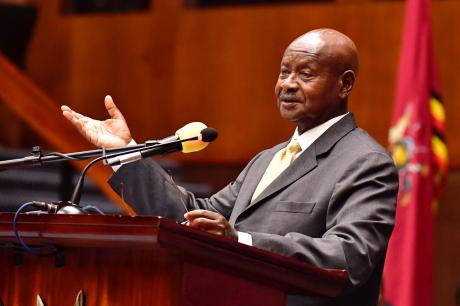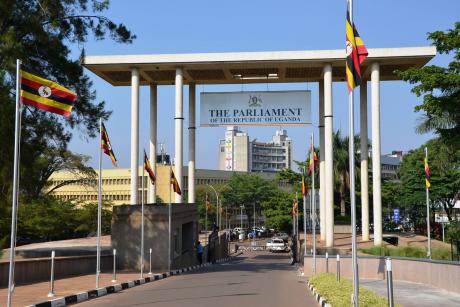African Demographers, Statisticians and Planners sat in Addis Ababa Ethiopia in March 1984 and established the Union for African Population Studies (UAPS), a Pan-African non-profit organization.
The rationale was that, this should be a Pan-African think tank on scientific study of population and application of research evidence in development, planning and hence their mission statement “To contribute to the development of Africa by enhancing networking and capacities of professionals to generate, communicate and use evidence-based information on population”.
UAPS holds conferences every after four years to “share and disseminate research evidence on population, health and development issues in Africa, provide an opportunity for networking and knowledge sharing between researchers, policy makers, programme managers, international development partners, and other key stakeholders in the population field.
This year, the 8th African Population Conference (APC) will take place between November 18-22, 2019 at Imperial Resort Beach Entebbe in Uganda. Over 1,000 delegates across the world are expected for the event.
This is another vote of confidence to Uganda’s commitment to issues of Pan-Africanism and having capacity to host conferences of international magnitude. Last month, Uganda again hosted Commonwealth Parliamentary Conference and many more international events coming.
Based on the latest United Nations estimates, Africa’s population is 1.3bn which is equivalent to 16.72% of the total world population.
Africa also has the youngest population in the world with more than 400 million young people aged between 15 to 35 years. This in itself has massive implications on national, regional and continental investments, urbanization, sexual and reproductive health, technology, the demographic dividend and capacity building.
Its on this basis that this year’s theme of the conference is “Harnessing Africa’s Population Dynamics for Sustainable Development: 25 Years after Cairo and Beyond”.
The conference comes against the backdrop of xenophobic attacks in South Africa perpetuated by unemployed youth targeting fellow Africans making a living in their country.
For the last five years, many young Africans have died in the Mediterranean sea trying to reach Europe in such of better jobs and quality of life. Terror groups like Al Shabab and Boko Haram have taken advantage of joblessness and recruited young people into their murderous ranks.
The majority of the youthful population are still employed in subsistence farming whereas graduates lack skills that are employable due to the theoretical nature of the colonial education system left behind by Europeans.
This has made poverty and ignorance persist in-spite of free universal primary Education and Universal Secondary Education in many African countries that has greatly increased the number of enrolled pupils and students in both primary and secondary schools.
The AIDS epidermic in Sub-Saharan Africa has affected the young people more, either as patients themselves or orphans. Though there was a decline in the general infection rates in the entire populations, there has been a resurgence as a result of unemployment and lifestyle changes among the young people.
This will definitely present a challenge for policy makers as they have to plan for a sick population. Mental health illness is on the rise among urban youth due to social economic vulnerabilities and drug abuse but hardly anyone ever gets treated for the condition either due to lack of experts or slow acceptance by governments that the issue needs serious attention.
Climate Change and its effects on agricultural output and food security greatly affect the living standards of people and creates urban slums whose majority dwellers are youth. Young people are disadvantaged when it comes to land ownership and therefore, find accessibility to loans extremely difficult.
Therefore, the conference that brings together African politicians, legislators, decision makers, civil society organizations, professional bodies, academia, cultural and religious leaders and international development partners must come up with remedies to promote the quality of our population for development of the continent.
The stakeholders must keep in mind that Africa’s youthful population calls for an increase of investment in economic and social development factors in order to improve the development index of African nations.
They must put mechanisms in place to actualize The African Union Youth Decade Plan of Action that focuses on Education and Skills Development, Youth Employment and Entrepreneurship, Governance, Peace and Security, Youth Health and Sexual Reproductive Health Rights and Agriculture, Climate Change and the Environment.
For us to achieve all that, ideological mind set change should be dealt with so as to propel our social economic development.
The writer is a Communication Assistant at Government Citizen Interaction Centre (GCIC), Ministry of ICT and National Guidance.







Comments